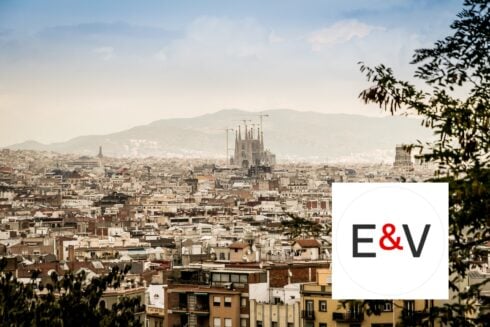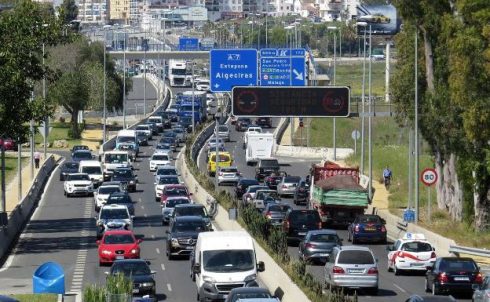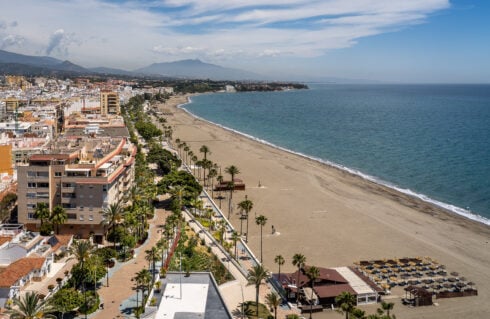EIGHT years on and there is seemingly no end in sight for Marbella’s attempts to update its urban planning scheme.
In an effort to bring clarity to Marbella’s legendarily dysfunctional planning regime – and legalise thousands of ‘illegal’ properties – the then council had drawn up a new Plan General de Ordenación Urbanística (PGOU or Urban Plan) to zone land for construction and protect green areas (to greatly simplify what a PGOU is for).
But it was struck down by Spain’s Supreme Court in 2015. Despite numerous promises of imminent approvals over the years by local leaders, the finish line still seems far off.
The problems really go back decades, and untangling them is a complicated task. Basically, the popularity of Marbella as a luxurious Mediterranean destination on the Costa del Sol tempted past mayors to take advantage of certain “economic opportunities.”
The Gil years
The most famous of these was Jesús Gil, mayor of Marbella between 1991 and 2002, who was jailed a few times and ultimately ruled disqualified to run for public office due to corruption. Just detailing his malfeasances would require its own article.

Ultimately, after he left office, several of his inheritors and collaborators were arrested, and the entire city council was sacked as part of the anti-corruption Operation Malaya. They were replaced by appointed administrators.
During his tenure, Gil allowed around 18,000 illegal homes to be built. He did this in part by passing the city planning law in 1998 – literally in the middle of the night. It was later tossed out, and Marbella reverted to the 1986 planning law known as PGOU. El Pais described it as follows: “Housing towers and residential developments mushroomed on land that had been reserved for schools, health centers, parks and, in one case, a bus station.”
Trying to revise the Urban Plan
Thankfully, those crazy days of legendary corruption are over. They may make great TV series material, but it’s not good for the health of a city. However, we’re still suffering the hangover, and a fair amount of lack of trust continues to be a drag on the city.
In 2010, Marbella’s town council submitted a revised PGOU to address the existing dysfunctional planning situation. It was also an attempt to normalize the legal status of all those illegally built properties. While well-intentioned, the Spanish Supreme Court ultimately rejected the document for attempting to oversimplify the complex legalization process.
Back to the 1986 rules
Since the Supreme Court invalidated the entire 2010 PGOU revision, Marbella reverted for a second time to use the previous 1986 PGOU — now over 35 years old. This antiquated plan has proved utterly inadequate for dealing with modern urban planning needs and complexities.
The reversion may have been understandable. However, it has been difficult for many property buyers and developers in Marbella who had purchased land or started projects based on the 2010 plan’s parameters. With the 1986 rules back in force, numerous developments suddenly became impossible to complete legally.
Toll taken on Marbella
The drawn-out planning paralysis has taken a toll on Marbella, undermining investor confidence and driving opportunities to nearby municipalities like Estepona, Benahavís, Ojén and Mijas. In Marbella itself, wait times for planning approvals now stretch 1-2 years in some cases.
After several aborted attempts by various administrations to formulate a new plan, the current mayor, Ángeles Muñoz, regained control of the process in 2017. Yet despite frequent proclamations that approvals were just around the corner, the finishing line never seems to arrive.
The latest timeline, announced in July 2022, projected final approval of the core Plan General de Ordenación Municipal (PGOM) document by late 2023. The PGOM passed its initial approval last March. However, the city planning director now states that the final endorsement will come sometime in the summer of 2024 if all goes smoothly.
All change as the plan is split
Under Andalucía’s new land use legislation, the old PGOU concept has also been split into two instruments. There is the broad strategic PGOM and the detailed urban implementation Plan de Ordenación Urbana (POU). The PGOM sets overall guidelines and the urban model, while the POU establishes granular zoning rules.

Mayor Muñoz claims this will allow the initial POU draft to move faster as much of the groundwork is already laid in the PGOM. But given the 13 years and counting it has taken to get even this far, local trust is running low. It also feels like a lost opportunity to restore trust by more publicly dealing with the long-standing disputes about illegal properties. The document appears to simply skirt the issue, denying that the current city government has any role to play in resolving a problem created by past city governments.
The way forward is beset by legal challenges
“Substituting the Courts of Justice in the task of legalizing what has been illegally built is not the task of planning.” Indeed, there are laws at the level of the region about illegal construction. But a cursory dismissal in this way must be heartbreaking for those who have been fighting for many years for some kind of resolution.
In any case, Marbella urgently needs a modern, agile planning scheme capable of addressing pent-up demand and facilitating sustainable growth. This new delay – until 2025 as far as the implementation plan (POU) is concerned – is upsetting.
Exciting development plans in Marbella’s future
On a positive note, it is heartening that the document contains exciting plans for the modernization and development of Marbella’s infrastructure. These plans include expanding the A7 and increasing access roads. There will be 29 new “large” green spaces and 16 river parks, as well as sports and waterfront facilities. There will also be land reserved for future rail stations/lines, a green belt around the city, and an underwater archaeological preserve. Within the city, there will be 28 new car parks, which will come as a relief to anyone who has driven around looking for parking.
Overall, the news from Marbella Town Hall on this front is mixed. There are some great ideas in the enormous planning document, but the delays are painful. Hopefully, we are reaching the end of the long wait.
READ MORE:
- Why my trophy cabinet is bare: What’s wrong with international property awards, asks Adam Neale of Terrameridiana on Spain’s…
- If you thought you knew diddly-squat about the rights of squatters vs homeowners in Spain, agent Adam Neale will…
- Spanish property expert Adam Neale explains why the first offer is always the best offer
Click here to read more News from The Olive Press.








